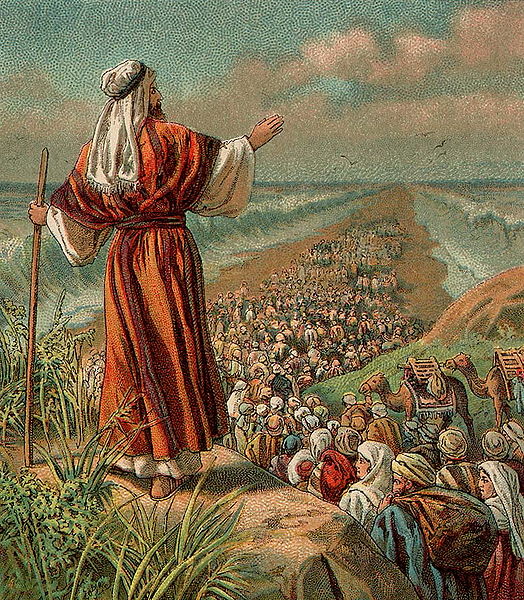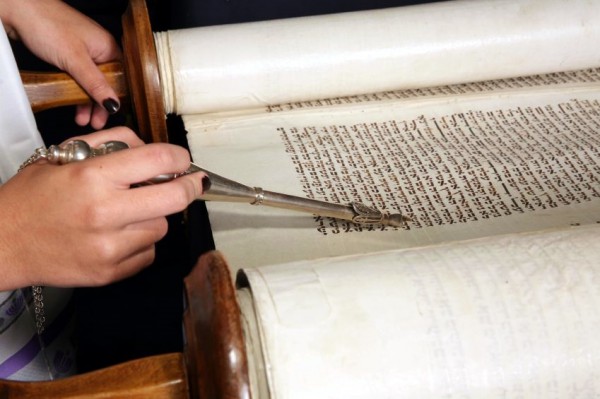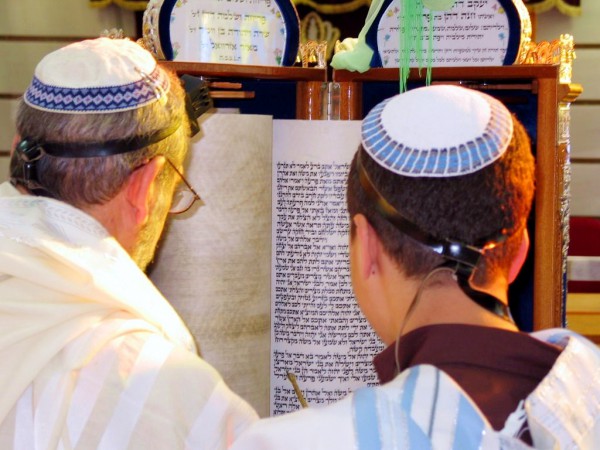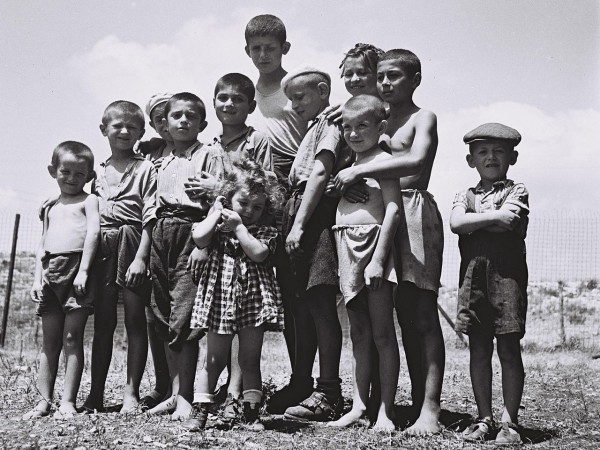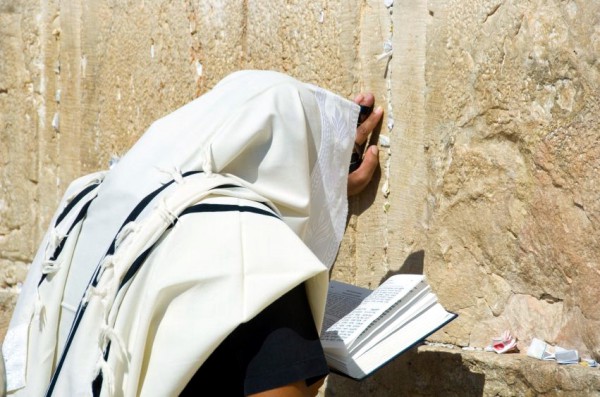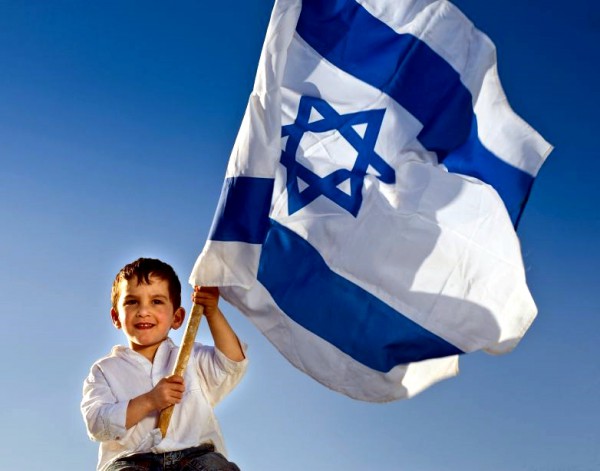Parasha Nitzavim (You Are Standing)
Deuteronomy 29:10–30:20; Isaiah 61:10–63:9; Romans 10:1–12
“All of you are standing [nitzavim] today in the presence of the Lord your God… You are standing here in order to enter into a covenant with the Lord your God… to confirm you this day as His people.” (Deuteronomy 29:10–13)
Last week, in Parasha Ki Tavo, Moses instructed the Israelites concerning the laws of the tithes given to the Levites and the poor.
This week, in Parasha Nitzavim, the Jewish People stand before God, about to enter into the covenant—a solemn oath—with Almighty God.
Such a momentous occasion! This covenant promised that God would establish Israel as His own people and that He would be their God.
It included everyone standing before God—from the greatest to the least—the heads of tribes, elders, officers, the men and women, the little ones, and the strangers (Deuteronomy 29:10–11)—from that day forward for all time.
It was so sweeping and powerful that it included those who were not present:
“I am making this covenant, with its oath, not only with you who are standing here with us today in the presence of the Lord our God but also with those who are not here today.” (Deuteronomy 29:14–15)
It seems that Moses not only foresaw through the Ruach KaKodesh (Holy Spirit) future generations, but also that day when others would enter into this covenant with the God of Israel.
A New Covenant
God also proclaimed, through the Hebrew Prophet Yirmiyahu (Jeremiah), that He would establish a new covenant with the house of Israel and the house of Judah.
The Torah would be in our mind and written on our hearts, and He would be our God and we would be His people. All would know Him—from the greatest to the least—and He would remember our sins no more (Jeremiah 31:31–34).
What a wonderful covenant we have with the One True God!
In the letter to the Ephesians, Paul, the shaliach (apostle) to the Gentiles, explains that non-Jews were formerly “excluded from citizenship in Israel and foreigners to the covenants of the promise, without hope and without God in the world.”
“But now in Messiah Yeshua (Jesus) those who once were far away have now been brought near by the blood of Messiah.” (Ephesians 2:12–14)
Those not of Jewish birth, who have been brought into the covenant through the blood of Yeshua, are “no longer foreigners and strangers, but fellow citizens with God’s people and also members of his household, built on the foundation of the apostles and prophets, with Messiah Jesus himself, as the chief cornerstone.” (Ephesians 2:19–21)

Ah, Sovereign LORD, you have made the heavens and the earth by your great power and outstretched arm. Nothing is too hard for you.” (Jeremiah 32:17)
On Remaining a Covenant People
“You yourselves know how we lived in Egypt and how we passed through the countries on the way here. You saw among them their detestable images and idols of wood and stone, of silver and gold. Make sure there is no man or woman, clan or tribe among you today whose heart turns away from the Lord our God to go and worship the gods of those nations.” (Deuteronomy 39:16–18)
In this Parasha, Moses cautions the Israelites to remain single-heartedly devoted to God, and not to follow after the gods of the nations they had passed through.
Likewise, we cannot claim the privileges of the Covenant and at the same time continue to walk in the stubbornness of our own hearts, living a lifestyle of sin as those do in the world (Deuteronomy 29:18).
The Brit Chadashah (New Testament) confirms that there is no sacrifice to cover a person who stubbornly persists in sin, even while knowing the truth of God’s Word:
“If we deliberately keep on sinning after we have received the knowledge of the truth, no sacrifice for sins is left.” (Hebrews 10:26)
Especially at this time, as we prepare for the fall mo’adim (appointed times) of Yom Teruah (Day of sounding the shofar / Jewish New Year) and Yom Kippur (Day of Atonement), we need to examine our lives for unrighteousness.
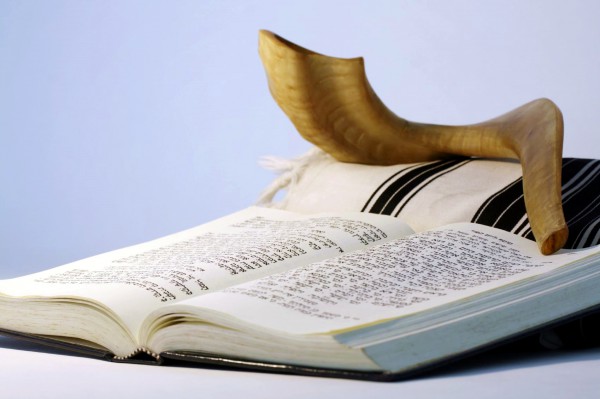
The shofar (ram’s horn), which is the object resting on a tallit (prayer shawl), is blown throughout the Hebrew month of Elul in preparation for the High Holy Days, which begin this Sunday night with Rosh HaShanah (New Year), also called Yom Teruah (The Day of Blowing the Shofar).
Captivity and Curses: Why Has God Done This?
“When such a person hears the words of this oath, he invokes a blessing on himself and therefore thinks, ‘I will be safe, even though I persist in going my own way.’ This will bring disaster on the watered land as well as the dry.” (Deuteronomy 29:19)
Moses warns the Israelites that those who turn away from God and persist in following their own ways will experience God’s wrath. He will not forgive them, their names would be blotted out, and the curses written in the Torah will fall upon them (Deuteronomy 29:20).
“The Lord will single him out from all the tribes of Israel for disaster, according to all the curses of the covenant written in this Book of the Law.” (Deuteronomy 29:21)
Moses warns in this Parasha that so great would be the destruction to the Land because of the sin of following after our own ways and the gods of the nations that the whole land would lay desolate and barren like Sodom and Gomorrah.
Indeed, just as foretold, this happened.
And just as predicted, the nations have asked, “Why has the Lord done this to this land? Why this fierce burning anger?” (Deuteronomy 29:24)
The bitter answer is always the same: “It is because this people abandoned the covenant of the Lord, the God of their fathers, the covenant He made with them when He brought them out of Egypt.” (Deuteronomy 29:25)
The Return to the Promised Land
“They went off and worshiped other gods and bowed down to them, gods they did not know, gods He had not given them. Therefore the Lord’s anger burned against this land, so that He brought on it all the curses written in this book. In furious anger and in great wrath the Lord uprooted them from their land and thrust them into another land, as it is now.” (Deuteronomy 29:26-27)
Because of Israel’s sin, the Lord, in righteous anger, wrath and indignation, uprooted the Israelites out of their land and scattered them throughout the earth to become the ‘wandering Jews’ in every nation.
The good news, however, is that our God is merciful. He doesn’t hold onto His anger forever, and He even promised through Moses that one day the children of Israel would return to God (Deuteronomy 30:1–10).
He would turn things around for Israel, and bring them back to the Promised Land.
“I will be found by you, says the Lord, and I will turn again your captivity, and I will gather you from all the nations, and from all the places where I have driven you, says the Lord; and I will bring you again to the place from where I caused you to be carried away captive.” (Jeremiah 29:14)
When the Lord personally brings each of us out of our captivity, it is a miracle of freedom! We are filled with joy and we can sing of the mercies of the Lord.
“When the Lord brought back the captivity of Zion, we were like those who dream. Then our mouth was filled with laughter, and our tongue with singing.” (Psalm 126:1–2)
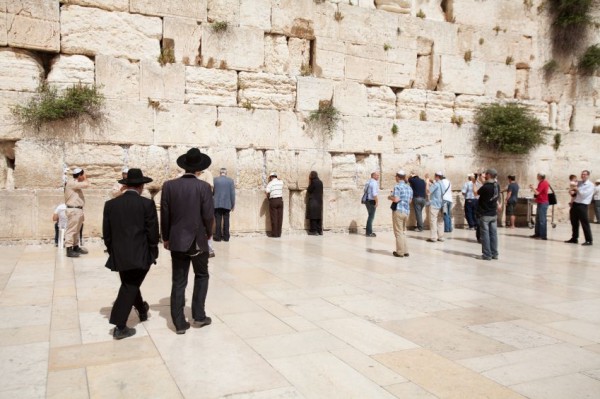
Now that the Jewish People have regained control of Jerusalem, they are finally free once again to pray at the Western (Wailing) Wall. As a retaining wall for the Temple Mount, upon which the Holy Temple was situated, it is Judaism’s most sacred site, apart from the Temple Mount itself.
The Lord Has Done Great Things
These days, the nations no longer look at the desolate, barren land in Israel and think of the terrible wrath of the Lord poured out upon the Land and people.
Now the nations have witnessed the amazing miracles that God has performed – the deserts are blooming like the Garden of Eden and the Jewish people are coming home.
Anyone can see that God has done great things for Israel. It’s prophecy fulfilled!
Today, it’s said among the nations, “The Lord has done great things for them. The Lord has done great things for us, and we are glad.” (Psalm 126:3)
God’s wonderful promises for Israel are coming to pass before our very eyes!
He has restored the land to fruitfulness and is bringing His people back from all four corners of the earth. Every day Jews emigrate from the nations of the world back here to their Jewish homeland.
Jews living in the Diaspora were never meant to find comfort and security there. They were meant to be secure in their own land.
It’s a sign of divine punishment that God’s people live outside the Land, and the prophet Ezekiel said it brings shame to God’s name.
“But when they were scattered among the nations, they brought shame on my holy name. For the nations said, ‘These are the people of the Lord, but He couldn’t keep them safe in His own land!’ Then I was concerned for My holy name, on which My people brought shame among the nations.” (Ezekiel 36:20–21)
The Lord promised in this Parasha and through the Hebrew prophets to bring the Jewish People back to the land He promised them.
While the largest influx of Jews returning to Israel was from Europe after the Holocaust, and Northern Africa as well as other Arab countries, they also came en masse from Russia and Ethiopia. Now, many are returning home from the United States.
“But you, mountains of Israel, will produce branches and fruit for my people Israel, for they will soon come home… and I will cause many people to live on you—yes, all of Israel. The towns will be inhabited and the ruins rebuilt.” (Ezekiel 36:8–11)
Blessing Comes Through Holding Fast to the Lord
“I call heaven and earth to witness against you today, that I have set before you life and death, blessing and curse. Therefore choose life so that you and your offspring may live, loving the Lord your God, obeying His voice and holding fast to Him, for He is your life and length of days….” (Deuteronomy 30:19–20)
One of the highlights of this Parasha is the promise of a life of blessing through remaining faithful to God.
Our life is in the Lord our God, and if we will listen to His voice and hold fast to Him, then He will bless us and the generations that come after us.
The Hebrew word for hold fast comes from the root word for glue (dabaq). We need to stick to the Lord like glue!
Haftarah (Prophetic Portion)
“For Zion’s sake I will not keep silent, for Jerusalem’s sake I will not remain quiet, till her righteousness shines out like the dawn, her salvation like a blazing torch.” (Isaiah 62:1)
Today’s Haftarah (prophetic portion of Scripture) is the seventh and final Haftarot of consolation, which began with Tisha B’Av and ends with Rosh HaShanah.
In this Parasha, Isaiah declares that he will not keep silent until Zion receives a new name from the Lord, and God makes Jerusalem a praise in the earth.
“You will be called by a new name that the mouth of the Lord will bestow. … No longer will they call you Deserted [Azuva], or name your land Desolate [Sh’mamah]. But you will be called Hephzibah [My delight is in her], and your land Beulah [Married].” (Isaiah 62:2–4)
To that end, God sets watch on the walls of Jerusalem.
Friend, will you be a watchman (notzer) upon the walls of Jerusalem who will prays continually, day and night, until God establishes Jerusalem and makes her a praise in all the earth? (Isaiah 62:6–7)
Will you call out for Jewish People to come out of captivity in the nations and to come home to the Land of Israel? Will you clear away the stones and obstacles, proclaiming to the daughters of Zion: “Behold, your salvation comes.” (Isaiah 62:1–11)




